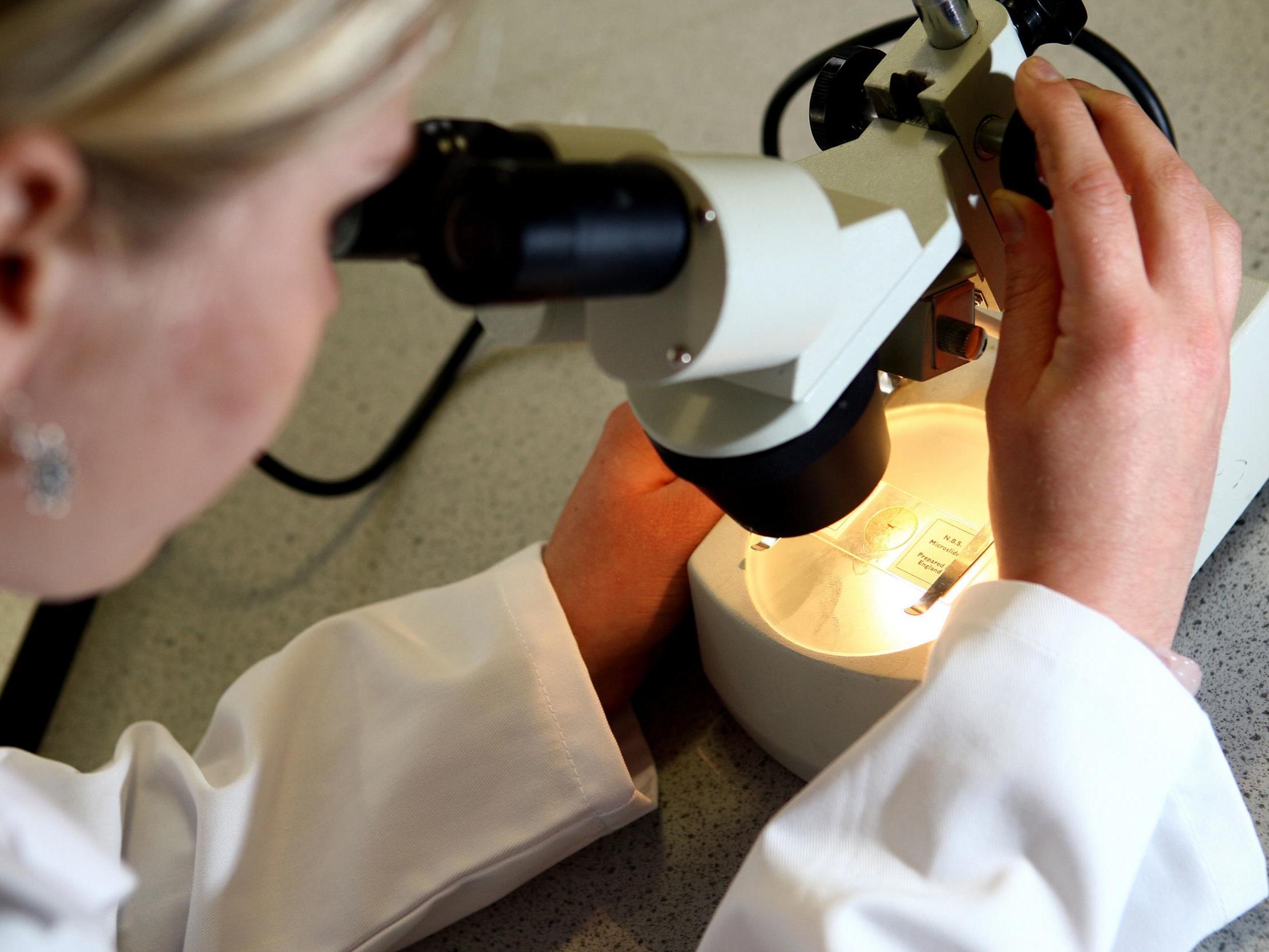Cancer cells use ‘don’t eat me’ signal to stop immune system attacking them, study finds
Discovery could lead to possible cure for sufferers of hard-to-treat ovarian and breast cancers

Your support helps us to tell the story
From reproductive rights to climate change to Big Tech, The Independent is on the ground when the story is developing. Whether it's investigating the financials of Elon Musk's pro-Trump PAC or producing our latest documentary, 'The A Word', which shines a light on the American women fighting for reproductive rights, we know how important it is to parse out the facts from the messaging.
At such a critical moment in US history, we need reporters on the ground. Your donation allows us to keep sending journalists to speak to both sides of the story.
The Independent is trusted by Americans across the entire political spectrum. And unlike many other quality news outlets, we choose not to lock Americans out of our reporting and analysis with paywalls. We believe quality journalism should be available to everyone, paid for by those who can afford it.
Your support makes all the difference.Cancer cells send a “don’t eat me” signal to stop the immune system from attacking them, according to new research.
Normally they are engulfed by immune cells but scientists had previously found that proteins on the surface of some cancer cells tell them not to do this.
This prevents healthy cells from being attacked, but now researchers from the Stanford University School of Medicine in California have found that cancer cells are using the same signals to hide.
They discovered the new “don’t eat me” signal comes from a protein called CD24. This could lead to a possible cure for sufferers of hard-to-treat ovarian and breast cancers, which affect thousands of women each year in the UK.
When the researchers blocked the CD24 signal in mice implanted with human cancers, they found that this allowed the immune cells, called macrophages, to attack the cancer cells.
This led to a reduction in tumour growth and increase in survival time in the mice, they wrote in their findings which were published in the journal Nature.
Researchers from the same university have previously shown that other proteins are used by cancer cells to protect themselves from immune cells. Antibodies that block a protein called CD47 are currently in clinical trials.
“By treating cancers with antibodies that block CD24, we can remove this ‘shield of armour’ and allow macrophages to effectively, and efficiently, clear the cancer,” said the latest study’s lead author Amira Barkal, a MD-PhD student.
“Additional research needs to be done to determine which patients are most likely to benefit from CD24-blocking therapies. Ovarian cancer and breast cancer are two of the most deadly diseases affecting women, and both are very aggressive cancers that are notoriously difficult to treat in the clinic. We are excited about the potential of these findings to provide a new strategy to treat and maybe even cure ovarian cancer and breast cancers.”
Her fellow author Irving Weissman, a professor of pathology and of developmental biology and director of the Stanford Institute for Stem Cell Biology and Regenerative Medicine, added: “Finding that not all patients responded to anti-CD47 antibodies helped fuel our research at Stanford to test whether non-responder cells and patients might have alternative ‘don’t eat me’ signals.”
The team started by looking for proteins that were more highly produced in cells with cancer than those without, and found an abundance of CD24.
When they combined mixed cancer cells with macrophobes in a dish and blocked the signal, the immune cells started “gorging on cancer cells like they were at an all-you-can-eat buffet”.
Ms Barkal added: “When we imaged the macrophages after treating the cancers with CD24 blockade, we could see that some of them were just stuffed with cancer cells.”
The researchers were particularly interested to discover that ovarian and triple negative breast cancer, which are difficult to treat, were highly affected by blocking the signalling. They believe CD24 is the “dominant innate immune checkpoint” for these cancers.
Rebecca Rennison, director of public affairs and services at Target Ovarian Cancer, said: “Finding more effective treatments for ovarian cancer is crucial to combating this devastating disease. We have seen fantastic results in immunotherapy in other cancers but it has not yet proven effective for ovarian cancer.
“Today’s announcement shows great promise in this area and if borne out by further research, this would represent a major breakthrough.”
Additional reporting by PA
Join our commenting forum
Join thought-provoking conversations, follow other Independent readers and see their replies
Comments